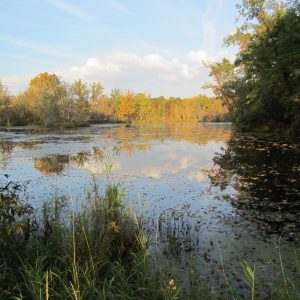The Stream, November 10, 2020: Raw Sewage Is Commonly Discharged into U.K. Waterways, Report Says
YOUR GLOBAL RUNDOWN
- Water companies in England and Wales illegally discharged raw sewage close to 3,000 times last year with little punishment from government officials, a new report finds.
- Hurricane Zeta has left a town of less than 4,000 in Alabama without clean drinking water.
- Droughts like the barely averted “Day Zero” in Cape Town, South Africa will become more likely as greenhouse gas-emissions continue to rise, according to new research.
- The Environmental Protection Agency awards Maryland over two million dollars to improve water quality throughout the state.
A judge rules against Mississippi in a decades long court battle over groundwater ownership between the state and the state of Tennessee.
“They want to enrich the Mississippi treasury by getting Tennessee to pay for water that we will show in the natural condition was flowing naturally into Tennessee anyway.” – David Frederick, an attorney for the state of Tennessee. A judge has ruled that Mississippi does not lay claim to groundwater in the state near Tennessee state lines, despite Mississippi lawyers arguing the opposite since 1985. For decades Mississippi has argued that the state of Tennessee has wrongfully taken more than 252 billion gallons of water from within Mississippi, the Clarion Ledger reports. Special Master Eugene Siler Jr., a judge appointed to preside over the case by the U.S. Supreme Court, ruled last Thursday that the water is an interstate resource and that Mississippi does not own the water. The case will now go back to the Supreme Court, who will decide whether to follow Siler’s recommendations.
IN RECENT WATER NEWS
HotSpots H2O: Water Systems in Eastern Ukraine Deteriorate as Conflict Continues – Following years of conflict between Ukraine and Russian separatist forces, frontline communities in the Donbas region of eastern Ukraine and southwestern Russia still lack access to clean drinking water and sanitation.
What’s Up With Water – November 9, 2020 – This week’s episode looks at Detroit, Oregon’s lack of access to clean drinking water, residential wells in New Hampshire that have gone dry or are slowing due to severe drought, and new recommendations for groundwater quality standards from Wisconsin state health officials.
Small Alabama Town Without Clean Water After Hurricane Zeta
Marion, Alabama’s almost 3,200 residents have been without drinking water since Hurricane Zeta hit last week. The storm knocked out the city’s power, the AP reports. County Health Department officials have advised citizens and businesses to avoid consuming the water, which is still safe for bathing, and 150 pallets of water were set to be delivered Friday and Saturday.
TODAY’S TOP STORIES, TOLD IN NUMBERS
5 TO 6 TIMES MORE LIKELY
Researchers from Stanford University and the National Oceanic and Atmospheric Administration (NOAA) found that Cape Town’s ‘Day Zero’ drought in 2018 was five to six times more likely because of manmade climate change. Stanford News reports that other parts of the world with similar climates to South Africa, like California, southern Australia, southern Europe and parts of South America could also face Day Zero droughts in the coming years. The climate model used in the study allowed the researchers to simulate the response of atmospheric circulation patterns to increasing levels of carbon dioxide and concluded that if greenhouse gas-emissions keep rising at the same rates, droughts like the one in Cape Town could become more extreme and last longer by the end of the century.
2941 SEWAGE POLLUTION INCIDENTS
A new report from the non-profit Surfer’s Against Sewage found that water companies discharged raw sewage into the sea near bathing water beaches in England and Wales 2,941 times in the past year. The organization’s 2020 Water Quality report also accused Southern Water, a private utility company in the UK, of failing to send combined sewer overflows (CSO) notifications between May and September. The report calls for nature-based solutions to sewage pollution and the implementation of more robust water quality legislation.
ON THE RADAR
The EPA awarded the Maryland Department of Environment over two million dollars to improve water quality in rivers and streams across the state, the Southern Maryland Chronicle reports. The grant is part of a program to improve nonpoint source pollution, or pollution caused by rainfall or snowmelt carrying natural and human-made pollutants into waterways, across the country. Funding in Maryland will focus on watersheds and water quality problems, along with supporting best management practices for water quality management.
Jane is a Communications Associate for Circle of Blue. She writes The Stream and has covered domestic and international water issues for Circle of Blue. She is a recent graduate of Grand Valley State University, where she studied Multimedia Journalism and Women, Gender and Sexuality Studies. During her time at Grand Valley, she was the host of the Community Service Learning Center podcast Be the Change. Currently based in Grand Rapids, Michigan, Jane enjoys listening to music, reading and spending time outdoors.







Leave a Reply
Want to join the discussion?Feel free to contribute!